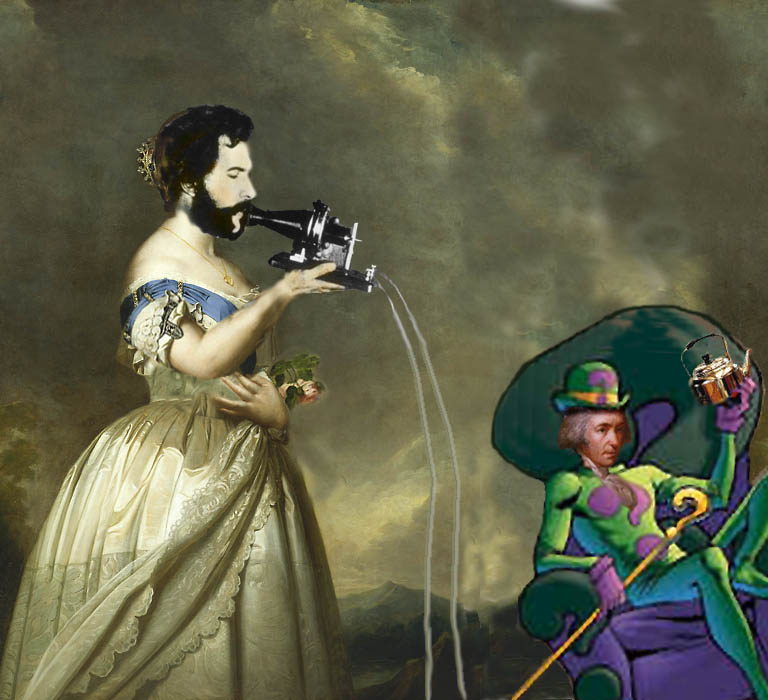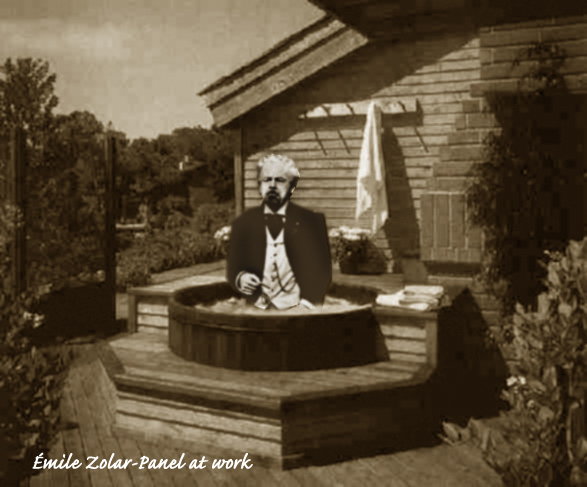 |
|
|
|
Let-us-now-praise-famous-men-and-our-fathers-that-begat-us- The-Lord-apportioned-to-them-great-glory Day
From 23rd October 1985
Tomorrow is Let-us-now-praise-famous-men-and-our-fathers-that-begat-us-The-Lord-apportioned-to- them-great-glory Day and although it is the only commemorative day on our calendar that, for reasons of space, doesn’t actually appear on our calendar we should still celebrate it, especially here in its birth-place, so I thought that we would have a slide show on the programme this morning to do our bit.
[SOUND OF SLIDE PROJECTOR STARTS AND CONTINUES TO END]
But first some background. The reason for the rather unwieldy name of Let-us-now-praise-famous-men-and-our-fathers-that-begat-us-The-Lord-apportioned-to-them-great-glory Day is that Oldbold the Grey the 126th elected Mayor of Rochester who instituted it in 1490 was proud of his ability to quote the Bible at length (not to mention the Apocrypha at even greater length), and got a bit carried away during the stormy council meeting at which it was created. Oldbold the Grey seems to have had a lot of stormy meetings during his 7 terms in office. In fact he doesn’t seem to have got on at all well with any of other members of the Establishment In fact it got so bad that the viciousness of both sides in his final Mayoral campaign persuaded Rochester to give up the idea of an altogether. That election was marred by, among other things, the opposition’s campaign song “The Old Grey Mayor she ain’t what she used to be”. Oldbold thought that the personal pronoun 'she' was just too personal, and, as a slur on his manhood, was quite unwarranted because, in his 92nd year, he had just got married, and was doubly unwarranted because he had just got married because he had had to. The nastiness of this election marks more than just the end of the elected mayoralty. It is one of the great turning points in our history, in a real sense it is the end of the honeymoon for early Rochester, and many Rochesterians claim that American history ends with that campain in the spring of 1492.
[SOUND OF CHANGING]
Our first slide shows Oldbold himself, with his first wife and 19 of their 27 children, in a formal found in the Uffizzi Gallery. He is justly celebrated first, because he was both a famous man and a father that did a fair bit of begetting in his generation.
[SOUND OF SLIDE CHANGING]

Rochester has long been renowned for its scientists and inventors. Here we see two of the biggies, who happened to live together. On the left is Alice Graham Cracker and on the right, in the dressing gown, is her very good friend James What?. Who among us could ever forget the famous double invention of 1723, when Alice called What? on her experimental telephone and asked him to put on the kettle, thus inspiring him to invent the steam engine? What a charming couple they make.
[SOUND OF SLIDE CHANGING]

I’m sure that none of you need to be told what this is a photo of…
[SOUND OF SLIDE CHANGING]

but how many of us would as easily recognize its inventors, the Wratt brothers, Awful and Wellbehaved Wratt. We can throw an interesting sidelight on communications in the late 15th century by the fact that Leonardo da Vinci knew of the Wratt brothers
[SOUND OF SLIDE CHANGING]
as we see here in Leonardo’s drawing of the Wratt’s parachute if you look to the of the parachute you will see in Leonardo’s hand the words (written backwards and in Italian as usual) “Awful Wratti, Good idea though”. As Welbehaved said towards the end of his life "Ah if only someone had invented a flying machine we would have made a killing".
[SOUND OF SLIDE CHANGING]

Rochester is not only famous for scientists here we see the most famous of our social reformers, Émile Zolar-Panel. An immigrant from France, he originally settled here in the middle of the twelfth century as an alternative energy consultant. In his book Jacuzi he exposed a dreadful scandal in the hot tub industry, which had been a hot item up till then. The Rochesterians were the first civilized people to bathe since Roman times (which is a long time to go without a bath), and an unfortunate side effect of Jacuzi was the decline of this habit. Much later, in his book Germinal, Émile commented strongly on the value of hygiene.
[SOUND OF SLIDE CHANGING]
This last magnificent slide needs no comment. It tells it all about the great men of Rochester……
in fact there is nothing I can add to that except -
Cheerio for now
from Richard Howland-Bolton.
 |  |
<-- Go Back |
|
|
| |

